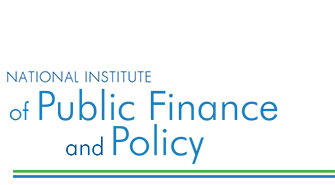Direct Taxes Code (DTC)
ARBIND MODI, Indian Revenue Service, New Delhi, India. email:arbindmodi@gmail.com
|
Why DTC?
The Income Tax Act, 1961 is too complicated: the provisions are sometimes overlapping and even contradictory; it is replete with administrative discretion that invariably leads to inconsistent application and opportunities for corruption; its provisions are often inconsistent with basic tax principles, it has not adopted international best practices it fails to deal with many common commercial transactions.
The Act therefore amply provides for tax planning and avoidance opportunities which result in serious revenue repercussions. Similarly complex tax legislation increases the cost of compliance, as also of administration. Since the cost of compliance is essentially regressive in nature, this undermines the equity of the tax system.
India’s Approach
In India, over the past three decades, marginal tax rates for personal income tax have remained stable broadly reflecting best international practice. However, corporate tax rates are relatively higher than internationally comparable rates. Any further rationalisation of tax rates may not be feasible without a corresponding increase in the tax base. Broadening of the base is important to enhance revenue productivity of the tax system and to improve its horizontal equity.
The strategy for broadening the base essentially comprises of three elements, foremost is to minimise exemptions. For several decades in India, the tax base has been eroded through a steadily escalating range of exemptions. The second element of the strategy relates to the problem of ambiguity in the law which brings about tax avoidance. Therefore, it is necessary to amend the tax laws in the light of new trends in interpretation by the judiciary, aggressive tax planning by taxpayers, and new opportunities for reducing compliance cost through massive induction of technology and public-private-partnership. The third element of the strategy, however, relates to checking of erosion of the tax base through tax evasion.
In devising an approach to tax reform, policymakers face a difficult choice between “bundling” and “sequencing” – that is, between attempting to adopt a comprehensive tax reform more or less at once, in what is sometimes referred to as a “big bang” approach, or in pursuing a more incremental strategy. Both offer advantages and disadvantages but in general, literature seems to suggest that comprehensive reform is preferable. There is prima facie evidence to suggest that the overall performance of countries as measured by average annual inflation and growth in GDP appear to be on average better among countries which have undertaken “big bang” tax reforms. Similarly foreign direct investment as percentage of GDP is also significantly higher in such countries. Accordingly, the government should re-write the Income Tax Act, 1961 as a Direct Taxes Code( DTC) to usher in a “big bang” reform in the direct tax system. |
Content of India’s DTC 2009
The DTC will be a comprehensive exercise for reforming the direct tax system and will therefore provide the benefit of taking a holistic view. The Direct Taxes Code, 2009 version, is designed on best international practice and sound principles of tax policy, it will provide stability and eliminate uncertainty; and the need for making frequent amendments in the tax law will therefore minimise. Removal of exemptions will have three consequences: (i) higher tax-GDP ratio; (ii) enhanced GDP growth, since tax exemptions and deductions distort allocative efficiency; and (iii) improve equity (both horizontal and vertical), by reducing compliance costs, enabling lower administrative burdens, and discouraging corruption. The DTC will allow for a reduction in corporate tax rates thereby, significantly improving the Internal Rate of Return (IRR) of projects. This should provide an impetus to higher investment and growth. The biggest beneficiary of the DTC will be the financial sector; higher benefits in terms of higher internal accruals will result in lower costs of capital for the borrower, simplify the tax laws and reduce both compliance and administrative costs. Further, the provisions relating to penalty and prosecution which have been rationalised to provide effective deterrence, would create a pro-compliance environment. Eventually, it will demonstrate the ability of the Government to undertake swift and hard decisions on tax reform.
Recommendation
In order to implement the DTC, the government should immediately review the Direct Taxes Code 2009 version, released to the public in August, 2009. The review would ordinarily take less time than conceptualising and drafting amendments to the prevailing Income Tax Act, 1961. The Direct Taxes Code (2009 version) should be introduced as part of the Budget 2014 as of money bill so as to ensure its speedy passage within seventy five days of its introduction. Since the provisions of this version have already been debated and analysed by the public at great length and by the Standing Committee on Finance in detail, it would not be difficult to execute the Code. There should be no amendments to the Income Tax Act, 1961 in the Budget 2014 and all direct tax proposals should be reflected in the Direct Taxes Code. |




